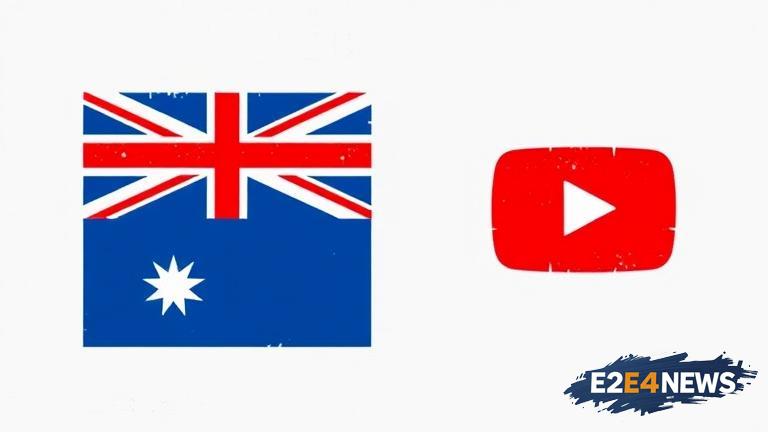The Australian government’s proposed social media ban has sparked a heated debate, with YouTube threatening to take legal action if forced to comply. The ban, aimed at curbing online harassment and misinformation, has raised concerns among tech giants and free speech advocates. YouTube’s parent company, Google, has expressed strong opposition to the ban, citing concerns over censorship and the potential impact on freedom of expression. The company argues that the ban would unfairly target YouTube and other social media platforms, while failing to address the root causes of online harassment. The Australian government has proposed the ban as part of a broader effort to regulate social media and protect users from online abuse. However, critics argue that the ban would be ineffective and could have unintended consequences, such as driving harmful content underground. YouTube has warned that it would take legal action if forced to comply with the ban, citing concerns over the potential impact on its business and users. The company has also expressed concerns over the ban’s potential impact on the broader tech industry, arguing that it could set a dangerous precedent for government regulation of online content. The Australian government has defended the ban, arguing that it is necessary to protect users from online harassment and misinformation. However, critics argue that the ban is overly broad and could be used to censor legitimate online content. The debate over the social media ban has sparked a wider discussion about the role of government in regulating online content and the potential impact on freedom of expression. YouTube’s threat of legal action has added fuel to the debate, with some arguing that the company is trying to bully the Australian government into backing down. Others argue that YouTube has a legitimate concern over the potential impact of the ban on its business and users. The Australian government has said that it will continue to push forward with the ban, despite YouTube’s threats of legal action. The company has argued that the ban would be a blow to freedom of expression and could have far-reaching consequences for the tech industry. The debate over the social media ban is likely to continue, with YouTube and other tech giants pushing back against government efforts to regulate online content. The Australian government has said that it will work with tech companies to find a solution, but YouTube’s threat of legal action has raised the stakes. The company has argued that the ban would be a form of censorship, and that it would be unfair to target YouTube and other social media platforms. The ban has also raised concerns among human rights groups, who argue that it could be used to silence marginalized communities. The Australian government has defended the ban, arguing that it is necessary to protect users from online abuse. However, critics argue that the ban is a form of overreach and could have unintended consequences. The debate over the social media ban is likely to continue, with YouTube and other tech giants pushing back against government efforts to regulate online content. The Australian government has said that it will continue to push forward with the ban, despite concerns over its potential impact on freedom of expression. The company has argued that the ban would be a blow to the tech industry and could have far-reaching consequences for online content. The ban has also raised concerns among free speech advocates, who argue that it could be used to censor legitimate online content. The Australian government has defended the ban, arguing that it is necessary to protect users from online harassment and misinformation. However, critics argue that the ban is overly broad and could be used to target marginalized communities. The debate over the social media ban is likely to continue, with YouTube and other tech giants pushing back against government efforts to regulate online content.
